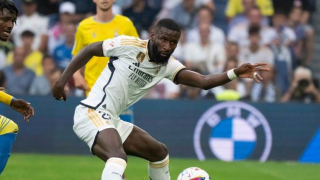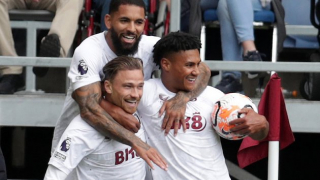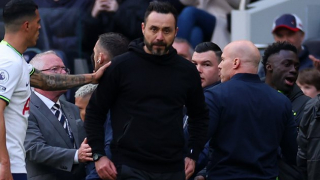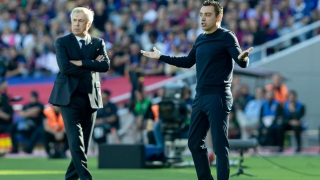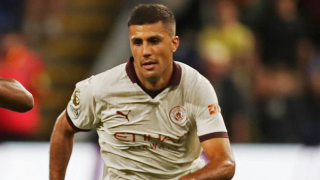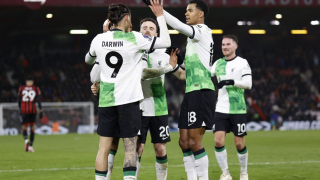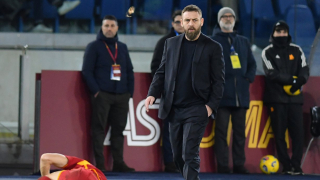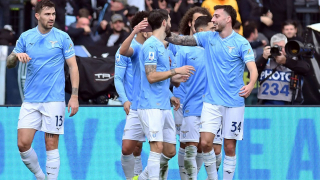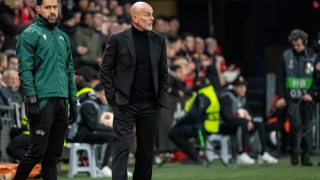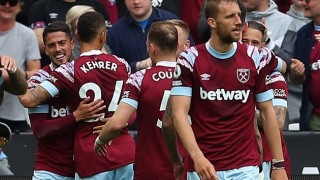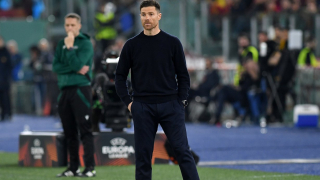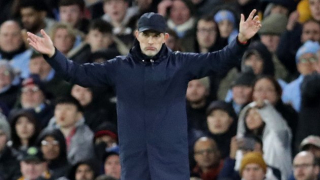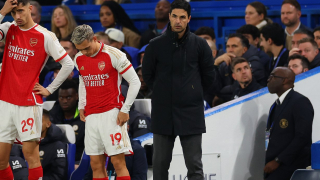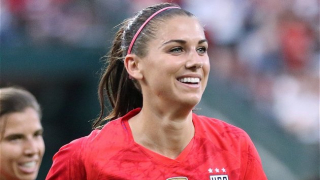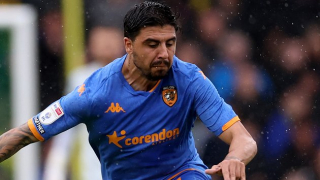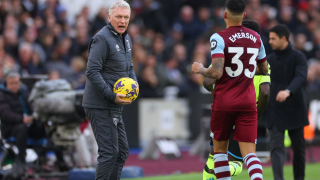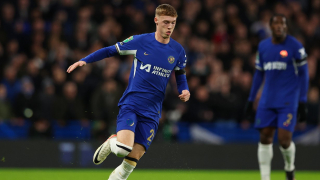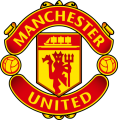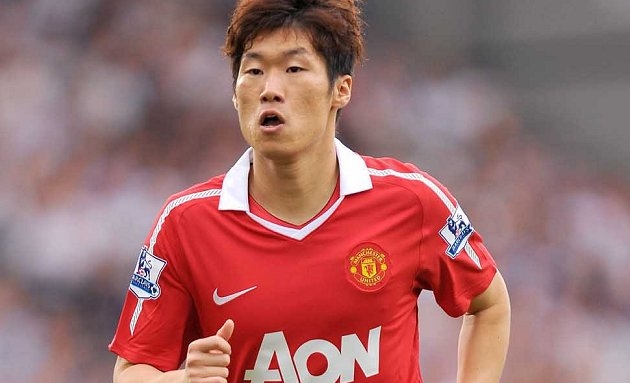Written by Tom BevisEdited by Andrew Slevison
Upon announcing the decision to hang up his boots in May 2014, Park Ji-sung unquestionably left the game as a national icon in his native South Korea.
Said to be Korea's answer to David Beckham, he had become a star both on and off the pitch as world famous brands such as Nike, Gillette and Samsung cashed in on his huge marketing appeal in Asia.
A veteran of three World Cup campaigns, (including the 2002 competition where Korea reached the semi-final as co-hosts) Champions League winner and four-time Premier League champion with Manchester United and two- time Dutch Eredivisie champion with PSV Eindhoven, he is perhaps second only to the legendary Cha Bum-kun as Korea's and Asia's greatest ever player.
Approaching a year since his retirement from the game, we take a look at how the man nicknamed 'three lung Park' is perceived in his homeland, what he has done since his retirement and the footballing legacy he has left in South Korea.
At the height of his fame, while playing for Manchester United, Park had developed into one of the most successful footballers Asia had ever produced, both through his talent and success but perhaps even more so from his marketability. In South Korea he was idolised by adoring fans.
Whenever he made public appearances at home, it is not exaggerating to say that he was greeted with a mass hysteria similarly associated with The Beatles during their heyday of the 1960's.
It was hero worship, Asia style, you could say.
Sales of Park merchandise, most notably the Park-emblazoned Manchester United shirts, became a multi-million pound earner for the club every year. In 2011, over one million Koreans owned a United branded credit or debit card, many showing Parks face and for each one distributed, the club earned an undisclosed fee.
Data from Korea estimated that over 40 million fans watched United's games on TV each season, averaging over 1 million people per match. Whilst on the books at United he easily received the most fan mail of all the players, the majority coming all the way from Korea or other Asian countries. In the cities of Seoul and Daegu they even opened up official South Korean Manchester United restaurants, with Parks face appearing on the windows.
While it is accurate to say that the United brand already had the support of many South Korean and Asian fans prior to Park's arrival in Manchester in 2005, with him, their sales went into orbit. Their pre-season tour matches played in Korea in 2005, 2007 and 2009 generated huge revenue and with the opportunity for fans to catch a glimpse of their hero, matches were guaranteed sell-outs.
To put it into perspective, of Korea's population of 49 million people, it was estimated that 27 million of them supported Manchester United during his time at Old Trafford.
In fact, during this period, Park was held in such high esteem that he was regularly referred to by locals as 'the hero', a testament to his achievements on and off the field. Koreans were proud of him for the way he represented himself and their country. He was a hugely talented player but also a consummate professional and role model for the younger generation in Korea.
Given Park's stature in the game, a natural question posed since his retirement is whether the profile of football in Korea has taken a hit as a consequence. It is an interesting point to think about as he was by far and away the biggest sports star in Korea throughout his Manchester United career. Without his presence on the pitch playing at one of the world's top teams, would football have the same mass appeal to Korean people?
To an extent it is perhaps true that his departure from the limelight of the Premier League coincided with a downturn in fortunes on the pitch for the Korean national team, culminating in a particularly poor showing at the 2014 World Cup. Also, it may be argued that the K-League has not progressed to the level that many hoped and predicted it would have a few years ago.
However, to suggest that Park's retirement has affected the profile of the beautiful game in Korea would be an exaggeration. Football in Korea has long been the national sport, and Koreans were fanatics way before Park Ji-sung came along.
If anything, the country is now producing more top players, capable of playing in the best leagues in Europe than when Park was at the peak of his powers. One only has to look at the likes of Park Joo-ho at Mainz, national team skipper Ki Sung-yueng of Swansea City and the new pin-up boy of Korean football, Son Heung-min, of Bayer Leverkusen, to see there is plenty of talent emerging within the country. The latter two in particular have the potential to reach the very top and perhaps take over the mantle Park held for so long as the country's most high profile player.
Their performances in the recent Asian Cup, where the Taeguk Warriors were narrowly beaten in the final by hosts Australia, certainly provided evidence to suggest a bright future for Korean football, under a new coach (Uli Stielike) and relatively young squad.
While it may be fair to suggest that Park's demi-god status and cult following has somewhat diminished since his exit from the Theatre of Dreams in the summer of 2012, he is still a hugely popular and respected figure in Korea and remains in the public eye.
Significantly, continued sponsorship deals with Nike, Gillette and Samsung ensure that Korean people still see Park's face on various advertising billboards and shop windows as they go about their everyday lives. Indeed, there are more permanent reminders of Korea's most famous son, such as the 'Park Ji Sung Street' in the large metropolis of Suwon, a province just outside of Seoul. The same city, which is home to the national football museum, now has its very own 'Park Ji-sung room' to honour his achievements.
On a more personal level, if you take a taxi as a foreigner (especially as an Englishman) in South Korea, more often than not, the driver will still initiate conversation with the words 'you know Park Ji-sung?', further emphasising just how proud the people are of their sporting idol.
When Park married last year it was big news in Korea. As a batchelor for the majority of his playing days, he appealed to Korean women almost as much as Korean men so when he finally did tie the knot, the Korean people were intrigued. His marriage to TV anchor Kim Min-ji made headline news in Korea and there was no shortage of paparazzi for their big day. A number of high profile guests such as Patrice Evra, his best friend from his playing days at United, former Korea boss Gus Hiddink, Olympic and World champion swimmer Park Tae-hwan, TV celebrities Jang Je-won and Kim Joo-woo and of course Gangnam Style star Psy, were all in attendance. While not quite the public spectacle of David Beckham's wedding to Victoria back in 2000, by Asian standards, it was about as A-list as they come.
Moreover, since his retirement, Park has remained busy and has a number of ventures he is currently involved in. For example he is now putting a lot of time into his JS Foundation, a charitable organisation which donates profits from various businesses in order to improve football infrastructure in Korea and other Asian countries.
Specifically, Park was central to organising the 2014 Asian Cup Dream in Jakarta, a charity match between various K pop stars and himself against the national Indonesian football team. This is now an annual event and is due to take place again later this year.
Park's soccer academies in Korea have also continued to flourish and just this month, 28 youngsters from his JSFC academy in Suwon were given the opportunity to travel to Manchester on a two-week residential football and English language course, part of United's soccer schools exchange programme. The trip was organized in part by Park himself and had the dual aim of improving the boys' football skills and their grasp of the English language.
In October of 2014, Park was also made an official ambassador of Manchester United alongside the likes of Sir Bobby Charlton and Bryan Robson. It is a highly prestigious role and further enabled him to remain in the limelight in Korea. In November, just a month into the job, he took part in a high-profile event in Seoul involving United's official financial services affinity partner for Korea, Shinhan card.
School children from local schools were invited to participate in a football training session, with the hardest working and most talented participant, chosen by Park, given a once in a lifetime VIP trip to Old Trafford to see a game and meet the players.
So, what next for Park?
Perhaps he will move into coaching at a higher level and pursue his UEFA badges to enable him to work at a top club in Europe or maybe he will be happy to continue his charity and ambassadorial work, giving him more chance to spend time with his new wife.
Whatever the future holds for him, it is clear that he has left a lasting legacy on South Korean football.
He was the first Asian player to really make it big in Europe in the age of globalisation and big money in the sport. His career at Manchester United has undoubtedly given Korean youngsters the belief that they too can be good enough to play in the best leagues in the world.
From the frail young boy made to eat frog's soup and deer antlers by his father to help him gain strength, Park Ji-sung grew into a footballing superstar and Korea's most famous sporting export.

